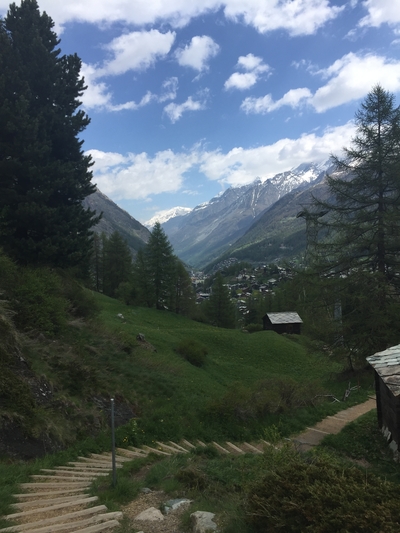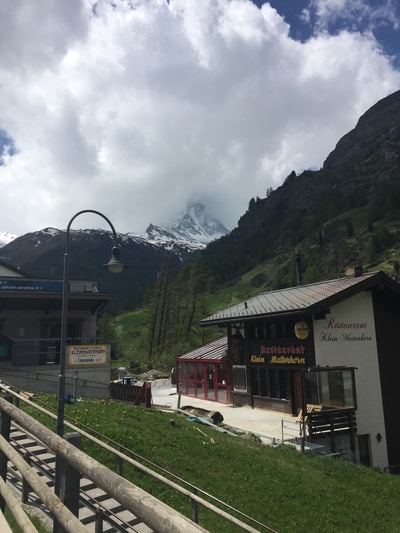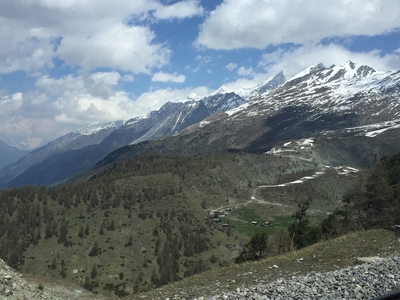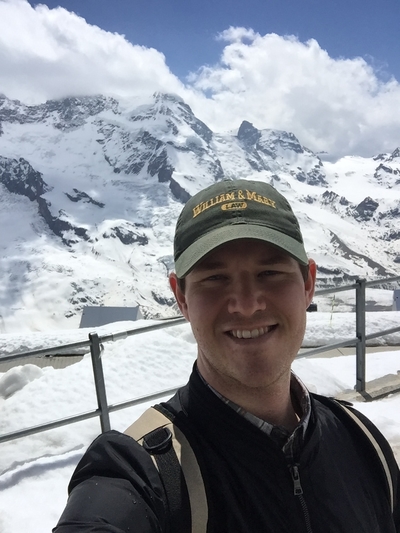Week 2: Busy, Busy
My second week, as I expected, was far busier than the first. Throughout the week, I worked on five different projects. First, I continued working on the UNVFVT proposal to get funding for Burundi. I finally completed my first draft of the proposal itself, and now all I had to do was get access to the application. While this may have seemed like an easy task, as I write this entry, we still have not even received confirmation of our registration with the UNVFVT, let alone access to the application itself. I am not sure if those in charge of the UNVFVT are just disorganized or if they are too backlogged to take care of registration entries but it has been two full weeks since the registration was sent out. In the meantime, while waiting on this response, I got in contact with Jean Claude Barakamfitiye and Astère Muyango, two of the people who run Burundi Bridges to Justice, in order to ask them for a list of case studies in the last twenty-four months for the grant application. Jean Claude responded very quickly and was happy to start putting together these cases for me. I have great respect for what these two men are doing in Burundi, especially during this tumultuous time for the country. They risk being thrown in prison or even killed because of their work in human rights advocacy. Just last year, the leader of one of IBJ’s partners in Burundi survived an assassination attempt following the murder of his son and son-in-law and was forced to flee the country. This shows the drastic nature of the situation in Burundi and why it is so important that organizations like IBJ and Burundi Bridges to Justice continue their work on the ground. While it is important that IBJ gets funding from the UN for Burundi, unfortunately, we are at the mercy of the UNVFVT until they send us the application. For now, this proposal is set aside until we finally receive a response.
The next project that I started to work on also related to Burundi. IBJ has a Criminal DefenseWiki that they have created that can be accessed by lawyers across the world. Each page of the Wiki, broken down by subject and country, contains important legal tools such as defense manuals, important international laws, treaties, and advice from other attorneys on how to best approach certain situations such as cross-examination of witnesses or speaking with victims of torture. I came across the DefenseWiki page for Burundi while doing research for the proposal to the UNVFVT and found out that the page was filled with outdated information. The last version of the Burundi Constitution and Code of Criminal Procedure was from 1999 and the background information on Burundi hadn’t been updated since 2005. After bringing this to the attention of Andrew, one of the program managers, I was tasked with updating this information. I quickly found the newest forms of the constitution and code of criminal procedure that were created in 2013 and wrote a new background information section for Burundi that included the current political and legal turmoil in Burundi. As soon as I am given authorization to edit the page itself, I will update all of the information so that lawyers from around the world can have the most updated information on Burundi.
After putting together this information for the Burundi DefenseWiki, Sanjeewa, the international program director, asked me to register IBJ as a partner for the UN Sustainable Development project. IBJ works hard to create as many contacts as possible in order to maximize its influence around the world and gain increased access to funding. IBJ is currently partnered with over one hundred organizations from around the world, with each offering unique opportunities for IBJ to expand. After writing up short descriptions of IBJ’s mission, its goals and methodology, and its vision for the future, the registration was complete and I sent it off to the UN. Hopefully, we will hear back soon and add yet another partner to IBJ’s ever-growing list.
The next two projects I started working on dealt with IBJ’s program in India. The first was an application to the Netherlands for a grant and the second was a concept note to the Bhartia Foundation, headed by Hari Bhartia who is one of the wealthiest people in India and who has recently started an initiative to help pre-trial detainees in India. IBJ’s program in India is in desperate need of funding and presents very unique problems, just like all of the other programs. In India, the main problem that IBJ faces is the sheer amount of cases. There are around 20 million pending cases in India and ten percent of those cases have been pending for over ten years. This problem was created by the fact that India’s legal system is incredibly understaffed. For example, in New Delhi there are over 500,000 people to one judge. The infrastructure of the system simply cannot maintain the levels of incoming detainees and as a result, the people of India often get lost in the legal system, forced to languish in prison for years before they ever see the inside of a courtroom. What makes this matter worse is that a very large portion of these detainees do not know that they have a legal right to a lawyer under the Indian Constitution and thus they think that they will never get out of prison. Unfortunately, many donors do not like to give money to India as they view other countries as being much more important. IBJ has not received a grant to India for over two years, in part because of this perception. However, just because it may seem that other countries require aid more urgently, the situation in India cannot be ignored. The problems in India will only continue to compound if they are not taken seriously. Even a small amount of funding can have an enormous impact on individuals on the ground. A small grant can provide a lawyer to a child in prison and ensure that years of that child’s life are not wasted behind bars or it can go into a rights awareness campaign that informs hundreds about basic legal rights. The possibilities are unlimited. Hopefully, one of these proposals I am writing will be successful and IBJ will finally be able to start increasing its operations in India once again.
With my second week completed, I decided to take a trip on Saturday to Zermatt, a small town in Switzerland lying in the shadow of the Matterhorn and the Alps. After a four hour train ride, I arrived in the small tourist destination. While most of the tourists were crowded around the many souvenir stations and shopping destinations that fill the town, I immediately walked to the edge of the city and up into the surrounding mountains. Zermatt has many winding hiking trails that travel up some of the surrounding hills and mountains. After hiking for over three hours and climbing up over one thousand feet from where I started, I took a cable car back down to catch the next train up to Gornergrat, a sort of observation platform located more than ten thousand feet above Zermatt. When the train finally got to the top, the view was absolutely breathtaking. On all sides I was surrounded by mountain peaks and glaciers, it was the most amazing thing I have ever seen. The only slightly disappointing part of the trip was that the top of the Matterhorn was engulfed in a thick layer of clouds, hiding the iconic mountain from sight. Regardless of this minor setback, this trip was an amazing experience that I will never forget.





